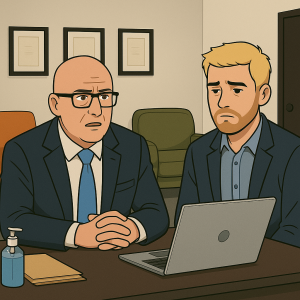1. Victim and Witness Rights
- NC Department of Public Safety – Victim Compensation Services
Offers financial compensation for victims of violent crime and supports related to medical, counseling, or relocation expenses. - North Carolina Attorney General – Victim Assistance
Provides information about victim rights, legal remedies, and state services for victims of abuse, stalking, or harassment.
2. Free and Low-Cost Legal Aid Programs
- Legal Aid of North Carolina
Offers free legal help for low-income residents on civil matters including restraining orders, online harassment, and defamation cases. - LawHelpNC
Online legal resource offering self-help tools, referrals, and forms related to abuse and harassment cases.
3. Relevant Laws
- Stalking: N.C. Gen. Stat. § 14-277.3A
What it means: Willfully following or harassing someone on more than one occasion, causing fear or emotional distress. Includes cyberstalking behavior. - Harassment: Covered under stalking and cyberstalking laws (N.C. Gen. Stat. § 14-196.3)
What it means: Unwanted electronic communications with intent to abuse, harass, or threaten. Includes repeated or obscene messages via text, email, or social platforms. - Bullying: No adult criminal statute. Addressed under N.C. Gen. Stat. § 115C-407.15 (Education Code)
What it means: Requires public schools to implement anti-bullying policies, including cyberbullying and off-campus behavior impacting student safety. - Defamation: Civil tort, not criminal. Based on North Carolina case law and precedent.
What it means: Individuals may bring a lawsuit for libel or slander if false statements cause reputational or financial harm. Defamation is not a criminal offense in North Carolina.
4. Reporting and Hotlines
- Call 911 for emergencies or threats to personal safety.
- Report non-emergency cases to your local law enforcement or file for protection in district court.
- North Carolina Coalition Against Domestic Violence (NCCADV)
Offers legal advocacy, shelter access, and safety planning for victims statewide. - Statewide Domestic Violence Hotline: 1-800-934-7961
Provides 24/7 confidential support, legal help, and emergency referrals throughout North Carolina.
5. Support Organizations
- North Carolina Coalition Against Domestic Violence
Coordinates services for survivors, including legal representation, housing support, and policy advocacy. - Interact of Wake County
Offers shelter, court advocacy, counseling, and crisis response in the Raleigh area and surrounding counties.
6. Civil Remedies and Protection Orders
Victims in North Carolina can file for a Domestic Violence Protective Order (DVPO) or Civil No-Contact Order, depending on their relationship with the offender. These orders can prohibit contact, communication, and presence at specific locations. Legal Aid and courthouse advocates are available to help complete forms and attend hearings.
Important Note on Jurisdiction: If the individual you are seeking a restraining order against lives in a different state, your local court may not have jurisdiction to enforce that order. In most cases, you must file for protection in the state where that individual resides or where the conduct occurred. This applies even in situations involving online harassment, defamation, or stalking. Contact legal aid services in both your state and the other person’s state for guidance.
7. Youth and School Resources
- NC Department of Public Instruction – Bullying Prevention
Offers guidance to schools on anti-bullying laws, reporting tools, and disciplinary requirements.
8. Court Forms and Filing Help
- North Carolina Courts – Protection Orders
Access court-approved forms and filing instructions for restraining orders and civil protective orders.
9. Online Safety and Privacy Tools
- NNEDV Tech Safety Toolkit
Provides strategies for managing digital security, tracking protection, and responding to cyber abuse or impersonation.
Disclaimer: This information is provided for educational purposes only and does not constitute legal advice.




